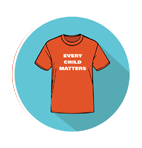Before we begin, I would like to acknowledge that as I write this bulletin, I am sitting on the traditional territory of the Mississaugas of the Credit First Nation. We express gratitude for the opportunity to live and work on this land and pay our respects to its Indigenous custodians, past and present.
Today is a great day to embark on a journey of self-education and enlightenment. By exploring the history, we can gain a deeper understanding of the events, cultures, and people that have shaped our world. It’s essential to recognize that knowledge is a powerful tool, and by familiarizing ourselves with the past, we can better navigate the present and influence the future. Let’s seize this day as an opportunity to expand our horizons and appreciate the rich tapestry of stories that history offers.
Your Component Diversity Committee is dedicated to emphasizing the significance of this day throughout the years. Truth and reconciliation are ongoing efforts that should be pursued daily. This principle will hold a prominent position within the committee, allowing us to wholeheartedly embrace and celebrate our roots.
The reasons why we wear an orange t-shirt have become a symbolic gesture of remembrance and solidarity, rooted in the tragic history of residential schools in Canada. The origin of this movement traces back to Phyllis Webstad, a Northern Secwepemc woman from the Stswecem’c Xgat’tem First Nation. As a young girl, Phyllis was excited to wear her new orange shirt on her first day at a residential school. However, upon her arrival, the shirt was taken away from her, symbolizing the loss of her identity, culture, and the personal violations she and so many others endured at these institutions. The “Orange Shirt Day” movement, observed annually on September 30th, emerged from Phyllis’s story. Wearing an orange t-shirt serves as a powerful visual reminder of the harm these schools inflicted on Indigenous children and the lasting impact they have on Indigenous communities. It’s a call for awareness, education, and reconciliation, urging us to remember the past and work towards a future where every child’s life and culture are valued and recognized.
Here are some guidelines and resources to further understand land acknowledgments:
https://www.whose.land/
To support local event:
https://orangeshirtday.org/events/
Support our cause with a donation:
https://www.iworks.org/kocihta
Empower through learning:
https://www.ualberta.ca/admissions-programs/online-courses/indigenous-canada/index.html
Discover a world within these pages:
– Five Little Indians / Cinq petits Indiens (Michelle Good)
– Kuei, My Friend: A Conversation on Race and Reconciliation / Kuei, je te salue : conversation sur le racisme (Deni Ellis Béchard, Natasha Kanapé Fontaine)
– A Short History of Indians in Canada / Une brève histoire des Indiens au Canada (Thomas King)
In solidarity,
Olivier Faucher-Boisjoli
Co-Chair, Diversity & Inclusion Committee


